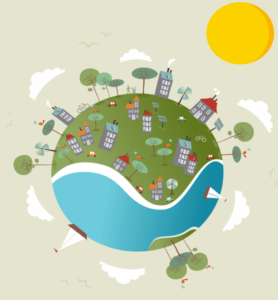 The preparedness of coastal communities in Maine to major weather and climate threats is being tested by increasing physical and economic damages, social justice implications among mitigation and adaptation choices, and interrelated challenges for community wellbeing. On Thursday, March 31st, Session 4 of the 2022 Maine Sustainability & Water Conference will bring together exemplary projects and processes for community resilience in Maine.
The preparedness of coastal communities in Maine to major weather and climate threats is being tested by increasing physical and economic damages, social justice implications among mitigation and adaptation choices, and interrelated challenges for community wellbeing. On Thursday, March 31st, Session 4 of the 2022 Maine Sustainability & Water Conference will bring together exemplary projects and processes for community resilience in Maine.
Join us from 10:10-10:30 a.m. as Island Institute Community Development Officer Abby Roche and Island Fellow Melanie Nash will highlight the Island Institute Fellows Program and the work that fellows do related to coastal resilience.
A signature program of the Island Institute, the Island Fellows Program places recent graduates in Maine’s coastal and year-round island communities for two years to support community development. With coastal resilience being critical for the sustainability, health, and longevity of island and coastal communities, current fellow Melanie Nash will talk about some of the challenges, successes, and roles Fellows have experienced, including succession planning for sustainability, and how to best utilize the resources and capacity of small coastal communities. In addition, Island Institute staff member Abby Roche will provide a reflection on past fellowships and provide a future projection of the role Fellows might have in motivating and supporting community action.
Learn more here
About the Conference
Organized by the University of Maine’s Senator George J. Mitchell Center for Sustainability Solutions, the Maine Sustainability & Water Conference provides an annual forum where professionals, researchers, consultants, citizens, students, regulators, and planners gather to exchange information and present new findings on sustainability and water resource issues in Maine.
Launched in 1994 with a primary focus on the future of Maine’s water resources, the conference has grown to incorporate topics related to many of the sustainability challenges facing Maine, including issues related to climate change, energy futures, agriculture, forestry, fisheries, tourism, and municipal planning. The conference attracts a broad audience of close to 400 participants from across the state.


